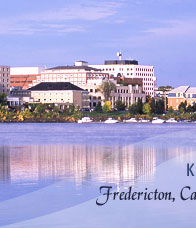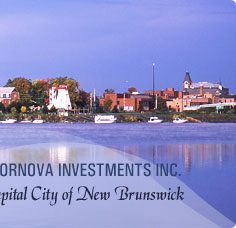Immigration pays off for Moncton
02/20/2013
A little less than one year into the job, the City of Moncton’s immigration specialist has met with 300 prospective newcomers to the city.
Subtract weekends and holidays and Deniz Akmaner is easily averaging one new or prospective Monctonian per day.
International migration to Metro Moncton in the past five years or so has exceeded anything that could have been imagined even a decade ago, but despite recent successes in drawing such critical new blood to the community, there are still challenges to attracting and then retaining immigrants.
Who are these people who would be Monctonians?
Akmaner says nearly half, or 45 per cent, of those she has seen in her job in the past year have hailed from China. Another 25 per cent have come from the Middle East, and 15 per cent have come from Korea, following greater numbers of Korean immigrants who had come in the years just before the city established its own immigration specialist position. Potential immigrants from Vietnam have accounted for 10 per cent of the visits to the Moncton office, while five per cent of the clients have been from various European countries.
The immigration specialist works within the city’s economic development office. Its director, Kevin Silliker, says the good news found in Statistics Canada numbers since Moncton became a census metropolitan area in 2006 and merited more extensive tracking from Statcan is that most international immigrants seem to be staying.
The most recent numbers are from 2009, but even without an update, they show a positive trend. There was an in-migration of 1,943 people from outside Canada who settled here between 2006 and 2009, and an out-migration of only 292 people.
It’s also worth noting the number of those settling in Moncton grew considerably each year, from a low of 237 in 2006 to a high of 786 in 2009.
Numerous programs are in place in Metro Moncton to help immigrants overcome obstacles to settling here.
Akmaner’s job is, in her own words, “to be the glue” that holds all of the services and those they serve together.
“Our common goal is to make newcomers feel at home. It’s a wholesome approach, a participative approach. We have to achieve it together,” she says.
The Multicultural Association of the Greater Moncton Area, Enterprise Greater Moncton, and CAFI (Centre d’accueil et d’accompagnement francophone des immigrants du Sud-Est du Nouveau-Brunswick) are all among those helping people settle here.
A lot is working well. First off, many immigrants come from teeming cities and enjoy the quality of life offered in a small urban area like ours. They like our education system and love what too many of us might take for granted: our clean air, open spaces and nature. They also see business opportunities, especially since Metro Moncton is the fifth fastest-growing urban area in Canada and the fastest-growing one east of the prairies.
There are challenges, not the least of which is that the federal immigration office that used to operate in downtown Moncton has been closed down. Akmaner says she often used to refer immigrants to that office for matters outside her scope of work, but that opportunity is now lost.
As well, having a working knowledge of one of our official languages might not be too challenging for European or Middle Eastern immigrants, but it’s a significant hurdle for most Asian immigrants.
Language classes are offered in the city, but unfortunately they tend to be daytime classes offered Monday to Friday, when many people are working.
On the bright side, a number of mentorship opportunities have been created to help entrepreneurial immigrants get established in the business culture of the area, and Akmaner aids in a lot of immigrant entrepreneur networking herself.
As well, the city’s economic development department is currently organizing an immigration summit for sometime this spring to attempt to bring even more stakeholders into the fold.
Much of Metro Moncton’s exceptional growth in the last half decade has been the result of migration from within the province. Meanwhile, Statistics Canada reported last week New Brunswick’s population in 2012 shrank for the first time in six years.
Against that backdrop, it appears everyone holds a stake in bringing more immigrants to the shores of the Petitcodiac.
by Brent Mazerolle
times & transcript staff |





